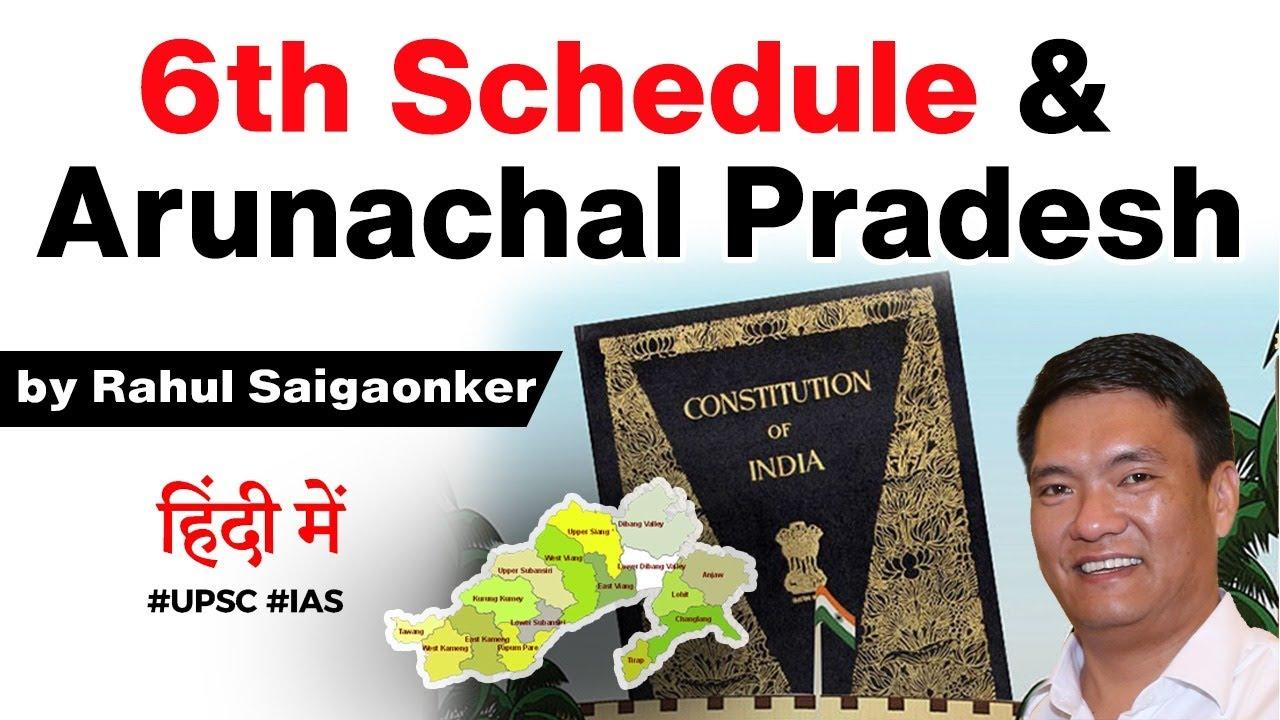Table of Contents
The News
- BJP-led government in Arunachal Pradesh wants the state to be placed under the Sixth Schedule of the Constitution.
- A resolution to this effect is likely to be tabled in the state assembly soon. (Passed on August 27th)
- Arunachal home minister Bamang Felix said: “After intense discussion with civil society groups and student bodies it was found necessary that for the protection of the religious and social practices and customary law and procedure of the tribes of the state, the Sixth Schedule is necessary.”
Is CAA responsible for this?
- .!!!
- The Citizenship Amendment Act (CAA) exempts the Sixth Schedule areas and the Inner Line permit areas.
- Arunachal Pradesh, Nagaland, Mizoram and Manipur are under ILP, while there are 10 areas under the Sixth Schedule in Northeast India.
Then Why the demand?
- AP govt says, that we have protection under ILP and under Article 371(H) of the Constitution but they do not provide full protection to the state’s people.
- The Statement: “We may have our land, air and water but we do not have its ownership”.
What’s the Sixth Schedule?
- The Sixth Schedule of the Constitution provides for the administration of tribal areas in Assam, Meghalaya, Tripura and Mizoram to safeguard the rights of the tribal population in these states.
- This special provision is provided under Article 244(2) and Article 275(1) of the Constitution.
- It was agreed upon by the Constituent Assembly in 1949 on the reports of Bordoloi Committee which allowed tribal areas to become developed as per their wishes.
- The tribal areas in the four states (ATM2) have autonomous districts.
- Note: ADs do not fall outside the executive authority of the state concerned.
- The governor is empowered to organise and re-organise the autonomous districts & regions within districts.
- Each autonomous district has a district council consisting of 30 members, of whom 4 are nominated by the governor and the remaining 26 are elected on the basis of adult franchise.
- The district and regional councils administer the areas under their jurisdiction. They can make laws on certain specified matters like land, forests, canal water, shifting cultivation, village administration, inheritance of property, marriage and divorce, social customs and so on. But all such laws require the assent of the governor.
- They can constitute courts for trial of suits and cases between the tribes. The jurisdiction of the high court over these suits and cases is specified by the governor.
- They can also make regulations for the control of money lending and trading by non-tribals.
- The acts of Parliamentor the state legislature do not apply to autonomous districts & regions or apply with specified modifications and exceptions specified by Governor.
Flashback
- 119th meeting of the National Commission for Scheduled Tribes was held in 2019 to deliberate the issue of inclusion of UT of Ladakh under Sixth Schedule of the Constitution of India.
- The Commission after careful consideration recommended that the Union Territory of Ladakh be brought under the Sixth Schedule of the Constitution.
What Next?
- Is it good to include new regions in Sixth Schedule? – Not really!
- Multiple power centres.
- Conflict of interests between the District Councils and the State Legislatures.
- Ripple effect leading to more demands
- Are ADCs really Developed?
- Note:
- In February 2019, 125thConstitutional Amendment Bill was introduced in the Parliament.
- Is it good to include new regions in Sixth Schedule? – Yes!
- Inclusion of a region in the sixth schedule will help in democratic devolution of powers.
- It will also enhance the transfer of funds for speedy development of the region.
- Note:
Latest Burning Issues | Free PDF





























 WhatsApp
WhatsApp